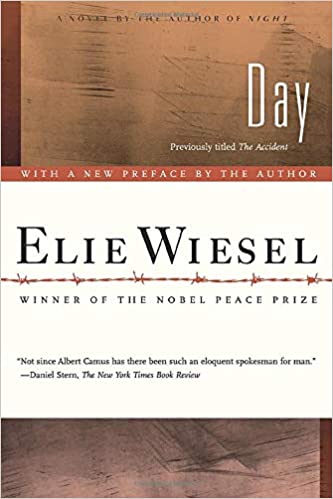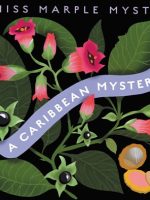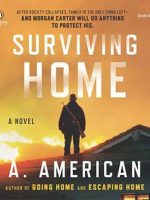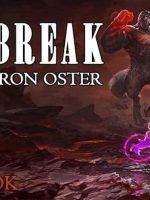Day (Unabriged) Audiobook – Night Trilogy, Book 3
Dive into Elie Wiesel’s poignant “Day,” masterfully narrated by George Guidall. This unabridged audiobook explores survival and memory through the lens of a Holocaust survivor navigating life after trauma. A profound exploration fitting for anyone seeking deep reflections on resilience and healing amidst dark histories—available for free listening at Ezaudiobookforsoul.com.
As I settled into my favorite nook of the couch one rainy afternoon, the world outside blurred into a watercolor of gray. The kind of day that invites introspection, I found myself reaching for Elie Wiesel’s “Day,” the concluding piece of his haunting “Night Trilogy.” With the gentle patter of raindrops as my backdrop, I pressed play on the audiobook, narrated by the incomparable George Guidall.
From the very first moments, Guidall’s voice enveloped me in a cocoon of solemnity and gravitas. He possesses an ability to translate Wiesel’s profound prose into an auditory experience that resonates deeply with listeners. As a Holocaust survivor grapples with memories that haunt him like shadows, I felt an unsettling familiarity; it was as if Wiesel were speaking directly to my soul, guiding me through the labyrinth of his past.
“Day,” previously titled “The Accident,” begins with a surreal collision between life and death—a moment when our protagonist is struck by a taxi in New York City. This jarring event acts as a catalyst for reflection, propelling him through a narrative steeped in trauma and survival. Listening to his thoughts unfold, I couldn’t help but ponder my own experiences—how we all carry fragments of our past that shape who we are today.
Wiesel’s exploration of memory and resilience is both heartbreaking and enlightening. As he navigates through his character’s struggles to forge a new identity while wrestling with the ghosts of the Holocaust, I found myself drawn into this dance between despair and hope. It sparked questions within me: How do we rebuild after our lives have been irrevocably altered? What does it mean to truly survive?
The themes presented in “Day” are as relevant today as they were during Wiesel’s own tumultuous journey. In an age where we often compartmentalize our traumas or choose to overlook them entirely, Wiesel challenges us to confront our collective history with honesty and empathy. His prose flows like a stream—sometimes turbulent, sometimes serene—and Guidall’s narration captures each nuance beautifully.
While some may argue that “Day” lacks the emotional punch of its predecessor “Night,” I found it to be a contemplative closure to Wiesel’s trilogy. It is not merely about recounting horrors; rather, it delves into the psyche of those left standing after tragedy strikes. It prompts us to reflect on our own narratives—the losses we endure and the strength we muster to move forward.
Listening to this audiobook became more than just an exercise in storytelling; it was a poignant reminder of humanity’s capacity for resilience against insurmountable odds. As I sat there, cocooned in my thoughts amidst the rain-soaked afternoon, I realized that “Day” isn’t just about survival—it’s about redefining life itself.
As I reached the final moments of this nearly four-hour journey, I felt enriched yet somber. Wiesel’s words lingered long after Guidall’s voice faded away—a testament to the power of storytelling in healing and understanding our shared human experience.
In conclusion, if you’re searching for an audiobook that interweaves history with philosophical reflection while offering insights into personal trauma and recovery, look no further than “Day.” It’s more than just an ending; it’s an invitation to engage with our pasts and embrace our futures with courage.
| Author | |
|---|---|
| Narrator | |
| Language |
- Soulful_ExplorationDay (Unabriged) Audiobook
- 01Day (Unabriged) Audiobook
- 02Day (Unabriged) Audiobook
- 03Day (Unabriged) Audiobook
- 04Day (Unabriged) Audiobook












